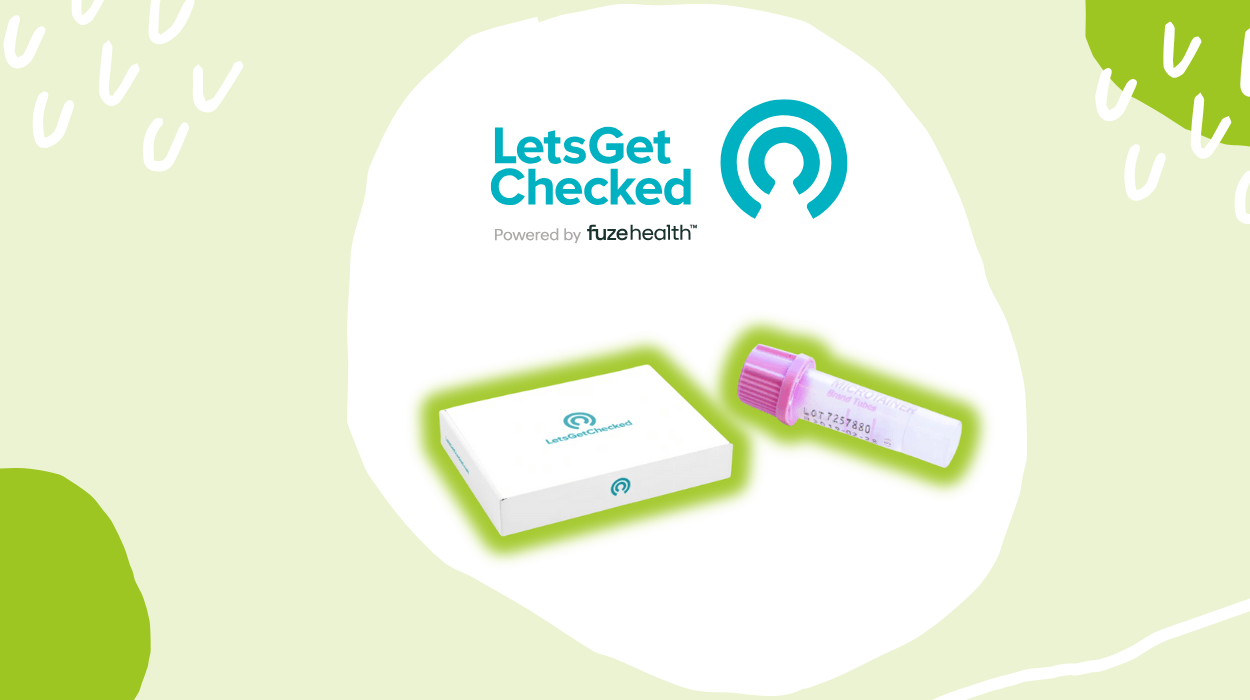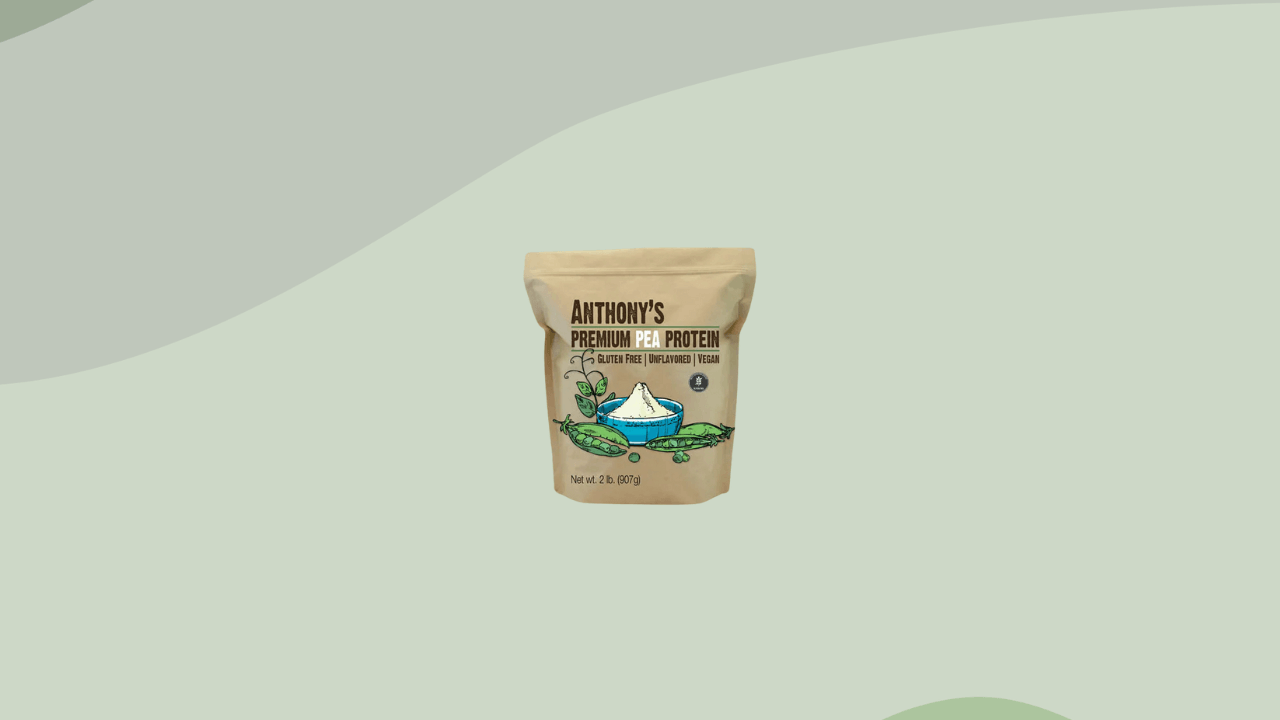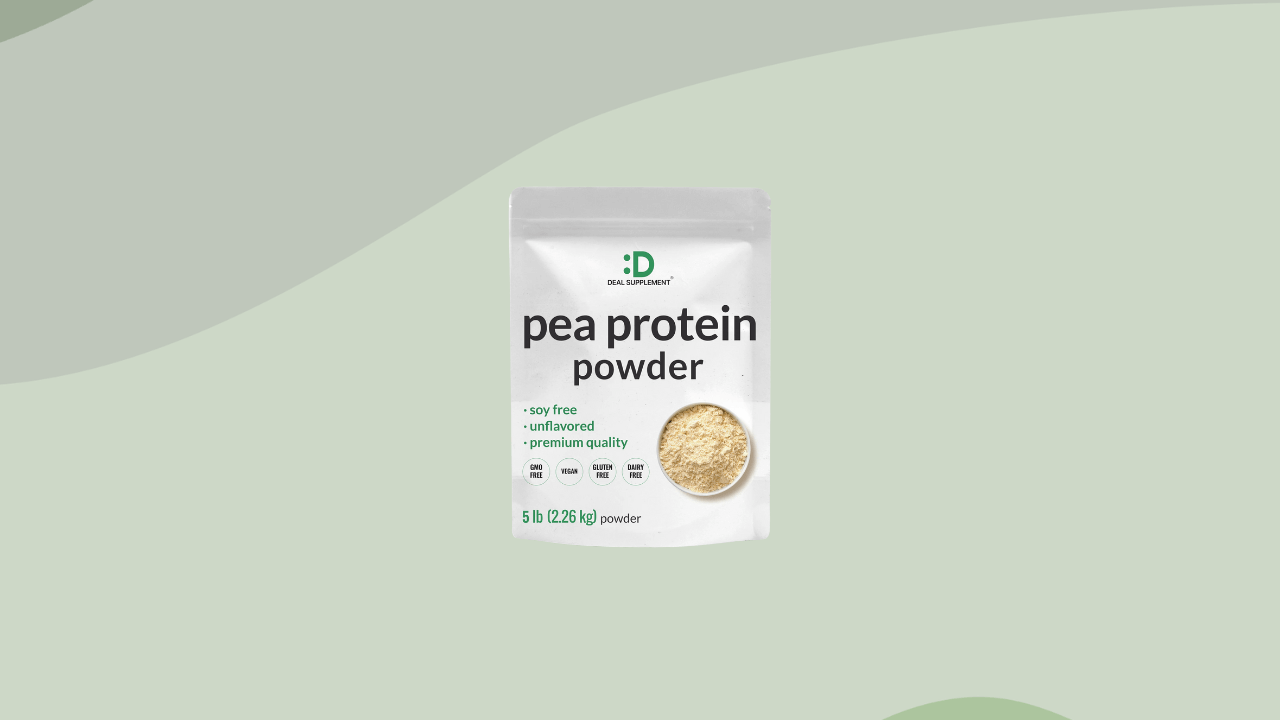

Pea protein powder could support your daily protein needs, especially if you're an athlete looking to support muscle recovery or if you follow a vegan diet. These powders could help you recover faster after an intense workout session.
Pea Protein Powder could also be a versatile addition to your daily routine as it could be blended easily into your smoothies or mixed with your baked goods. It can also be gentler on your stomach as they have a high digestibility rate compared to other plant-based options like soy or brown rice protein powders.
In this blog post, we've reviewed the 10 Best pea protein powders in 2025 based on their protein quality, taste, mixability, ingredients, and value. We have also shared their pros and cons, along with potential side effects that may occur, to help you make an informed decision.

Naked Pea is made with yellow split peas grown on sustainable farms in the United States and Canada. The makers claim to use a chemical-free mechanical extraction process to preserve a superior amino acid profile that may support muscle growth and recovery.
As per its official website, Naked Pea delivers 27 grams of protein per two-scoop serving, with just 120 calories and no added sugars, making it suitable for people following vegan, dairy-free, soy-free, or gluten-free diets. The makers also state that Naked Pea is independently third-party tested for heavy metals, ensuring high safety and quality standards.

Anthony's Premium Pea Protein is made from yellow peas and provides 8 grams of protein per serving of 1 tbsp. As per the official website, the protein in Premium Pea Protein is extracted by removing the starch and fiber from yellow peas. This makes it a concentrated source of protein with a smooth texture that could be blended seamlessly into shakes, smoothie bowls, baked goods, yogurt, and more. Anthony's Pea Protein may support muscle recovery, help maintain lean body mass, and contribute to satiety when taken alongside an exercise routine and a healthy diet.

Micro Ingredients Pea Protein Powder is sourced from North American farms and is available in 100% raw, unflavored, and unsweetened powder form. It provides 27 grams of protein per 33-gram serving, helping you support your required protein intake.
As per its official website, Micro Ingredients Pea Protein Powder may support muscle recovery, tissue maintenance, and immune function with the help of its nutrient profile, containing branched-chain amino acids (BCAAs) and essential amino acids (EAAs).

Now Sports Organic Pea Protein provides 15 grams of easily digestible protein per 2-scoop (20g) serving. Derived from organic yellow peas, this powder could be a suitable option for people avoiding common allergens such as dairy and soy.
Now Sports Organic Pea Protein also offers over 2,700 mg of branched-chain amino acids (BCAAs) and more than 1,300 mg of arginine per serving, which may support muscle recovery.
As per the official website, Now Sports Organic Pea Protein's each serving also provides beneficial micronutrients like iron 5mg (30% DV) and calcium 58mg (4% DV).

According to the official website, Zammex Nutrition's HydroPea Protein is a hydrolyzed pea protein powder made from 100% raw yellow peas grown in Canada. It utilizes Zammex's patented technology, which makes the formula smooth, addressing the common gritty texture often associated with plant-based proteins.
Zammex Nutrition's HydroPea Protein provides 27.2 grams of protein per two scoops, which may help with muscle repair, energy metabolism, and recovery. It also contains 6.4 mg of iron (18% DV) and 55.3 mg of calcium (6% DV) per serving, which may support bone health and oxygen transport.
The makers state that to use Zammx Nutrition's HydroPea Protein, simply add 1–2 scoops to water, coffee, or smoothie for a customizable protein boost. It is said to be free from added sugars and trans fats.

Sprout Living's Organic Pea Protein offers hypoallergenic protein powder made from organic yellow peas. It provides 20 grams of protein per 1 scoop serving, with a neutral, slightly nutty flavor that blends effortlessly into smoothies, oatmeal, baked goods, and more.
As per the official website, Sprout Living Organic Pea Protein is sourced using a water-extraction method, which helps retain essential nutrients like potassium, calcium, fiber, and healthy fats. These nutrients may help promote digestion, support heart health, and aid in muscle recovery.

As per the official website, Nutricost Organic Pea Protein provides 20 grams of pea protein per one scoop serving, which may support muscle growth, recovery, and exercise performance. Sourced from certified USDA organic yellow peas, this protein powder is non-GMO, gluten-free, and undergoes third-party testing to ensure purity and quality.

Deal Supplement Pea Protein Powder is made from premium yellow peas harvested from North American farms. Its 5lb container provides 27 grams of pea protein per two-scoop serving. According to its official website, Deal Supplement Pea Protein Powder is available in unflavored and in isolate form, enhancing digestibility and absorption. It can also be blended into smoothies, baked goods.

As per the official website, Organic SoLo Pea Protein is derived from organic yellow peas grown in Saskatchewan, Canada. The makers state that they used a proprietary water-based extraction method that helps reduce excess sodium.
Organic SoLo Pea Protein may help support muscle growth, energy metabolism, and tissue maintenance. The official website mentions that it can be mixed easily into water, smoothies, or soups, and the makers recommend using it at two scoops per 10–16 oz of liquid.

NorCal claims that their Organic Pea Protein is created from organic yellow peas grown on certified Canadian farms that follow sustainable agricultural practices. As per the official website, the protein in NorCal Organic Pea Protein is processed without the use of hexane or enzymatic treatments, resulting in a clean pea protein isolate. NorCal Organic Pea Protein provides 22 grams of protein per two-scoop serving, including 4.8 grams of branched-chain amino acids and 2.18 grams of arginine, which might support muscle function and recovery.
Pea protein powders are rich in iron, an essential nutrient, but consuming them in large quantities daily can risk iron overload. Excessive iron can accumulate and lead to toxicity, causing symptoms like stomach pain, nausea, fatigue, and, in severe cases, organ damage. People with pre-existing iron conditions or the ones taking iron supplements should monitor total daily iron intake to avoid imbalances, especially if prone to conditions like hemochromatosis.
Consuming pea protein powders may place a strain on your kidneys. This might cause dehydration, kidney stones, or other renal issues as excess protein is excreted through the kidneys. Overconsumption may also disrupt the balance of essential nutrients in your body, potentially leading to deficiencies in carbohydrates, fats, and other micronutrients necessary.
Some pea protein powders may contain varying sodium levels depending on the processing method used. While some products have lower sodium content due to specialized extraction techniques, others may have higher levels due to additives or residual sodium from manufacturing. High sodium intake can cause an increase in blood pressure, fluid retention, and cardiovascular issues, particularly for people with hypertension, heart disease, or those on a low-sodium diet. Excessive sodium can also cause swelling, bloating, and discomfort and may worsen kidney function over time.
Now Foods leads in our evaluation as it holds an A+ rating from the BBB, which could indicate high customer satisfaction and ethical business practices.
Nutricost has received a B+ rating from the Better Business Bureau (BBB). This rating indicates that the company generally provides good customer service, though there is room for improvement in certain areas.
Sprout Living also holds a B+ rating from the BBB. Like Nutricost, this suggests that while the company maintains a solid standard of customer service, some aspects may benefit from further enhancement.
Naked Nutrition has received an F rating from the Better Business Bureau (BBB). This grade indicates that the company has unresolved customer complaints and potential issues with its business practices.
Micro Ingredients also holds an F rating from the BBB. Similar to Naked Pea, this low rating signals ongoing customer complaints and possible concerns about the company's operations. This suggests that customers may encounter issues related to product quality or service, which affects the brand's overall trustworthiness.
AnthonyGoods has received an A-rating on BBB, as there have been 5 complaints filed against the business, which contributed to its rating.
Zammex Nutrition, Deal Supplements, Organic SoLo, and NorCal lack reviews on both the BBB and TrustPilot. Without external feedback or ratings, it's difficult to assess their reputation, which can leave you uncertain about the brand's reliability and product quality.
We assessed each pea protein powder's refund policy to evaluate if it focuses on the consumer's convenience. Deal Supplement ranks highest with its 60-day unconditional money-back guarantee, which even covers opened products if there's a quality issue.
Nutricost follows closely with a 60-day return window, though it only applies to unopened items beyond the first tub, excluding clearance items. Zammex offers a clear 30-day return for unused, sellable products.
Micro Ingredients provides a 30-day return policy, but it's limited to unused products bought via their Shopify site and requires proof of purchase. Now Sports also allows 30-day returns for unopened items bought directly from their website, but return shipping is at the buyer's expense. Organic SoLo offers a flexible 30-day return policy and promises to resolve any dissatisfaction, but with less clear terms, causing confusion.
Sprout Living allows returns or store credit within 30 days but uses vague terms like “within reason,” which could lead to uncertainty. NorCal has a basic 30-day refund guarantee with limited details, making it reliable but not as customer-oriented.
Naked Pea's 14-day return policy is restrictive, only applying to unopened items, and it excludes shipping costs. Anthony's is the least flexible, offering no returns or refunds under any circumstances.
Anthony's Premium Pea Protein gives you the best value for your money at $23.09 for 90 servings. Deal Supplement follows with 68.4 servings for $36.95, offering a good balance between cost and quantity. Naked Pea costs more at $57.99 for 76 servings, but the clean ingredient list may make it worth it.
Nutricost Organic Pea Protein could be a fair option at $27.97 for 36 servings, especially if you're looking for something organic. Micro Ingredients Pea Protein Powder, at $48.95 for 68 servings, is fine but slightly more expensive.
ZAMMEX HydroPea Protein is available for $33.95 with 35 servings, making you pay a bit extra for hydrolyzed protein, which may be easier to digest. Now Sports Organic costs $32.99 for 34 servings and is priced on the higher side. NorCal Organic Pea Protein is available at $39 for 35 servings, and Organic SoLo is $38.95 for 35 servings, which some people might find pricier.
Sprout Living Pea Protein is the least cost-effective at $29.95 for just 19 servings. While it claims to use potent ingredients, the serving count is too low for the price.
Pea protein powders may support muscle growth and recovery and aid in your daily protein intake. They can also offer a complete amino acid profile, including BCAAs and arginine.
A peer-reviewed study published in the International Society of Sports Nutrition’s journal also highlights that pea protein could function as whey protein in helping promote muscle thickness when paired with resistance training.
The 10 pea protein powders discussed in our blog post are chosen for their clean label and alignment with vegan diets. However, they also come with potential limitations. Pea protein powders can have a naturally high iron content, which may be unsuitable for people already consuming iron-rich diets or supplements.
Excessive protein intake may also pose risks for those with underlying kidney conditions. Some people may also find the taste and texture of pea protein powders less appealing compared to other protein sources.
While pea protein powders can be useful, they should be considered as part of a balanced diet that includes whole food protein sources along with strength training to support long-term fitness goals.
Contact us at [email protected] or follow @leafsnap on Twitter! View our Privacy Policy.